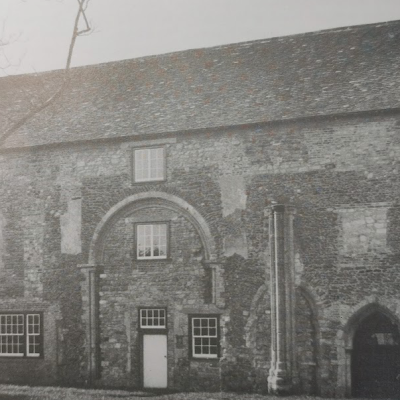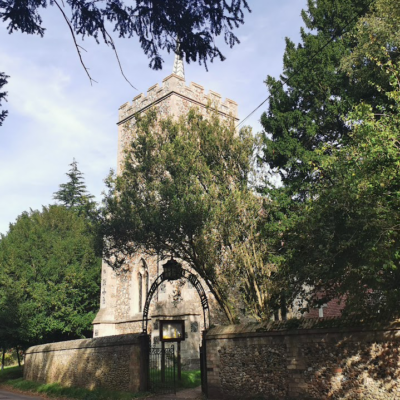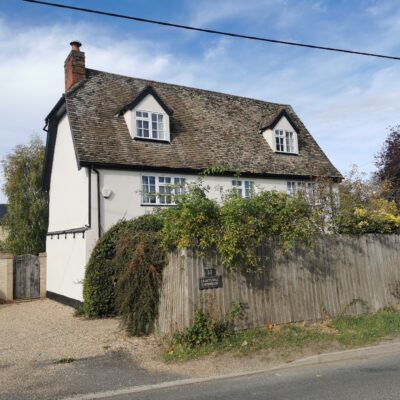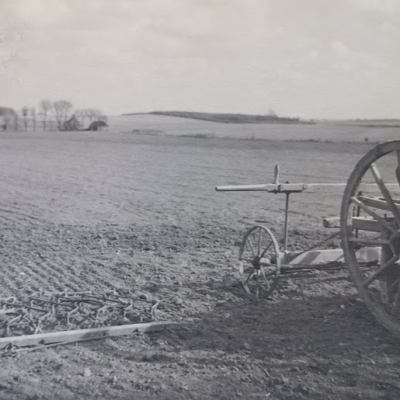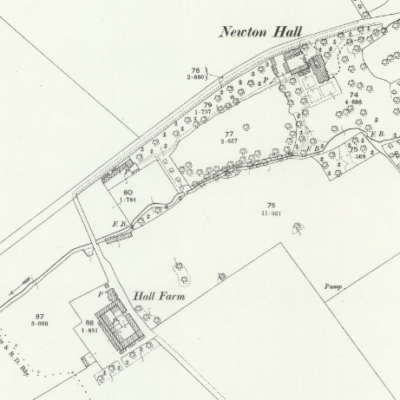Search by topic
- archaeology
- architecture
- bricklayer
- Building of Local Interest
- carpenter
- church
- crime
- dressmaker
- fire
- Great Eastern Railway
- listed building
- medieval
- oral history
- Public House
- Rattee & Kett
- Religious House
- Roman
- scholar
- school
- Then and Now
- tudor
- women
- work
- world war one
- world war two
Search by text
Top Farm, (Townend / Townsend Farm),Newton
History of Barn Top Farm
Listed building:
House, probably early C17, with late C17 alterations and C19 lean-to at the rear. Timber frame, plaster rendered, and cased in yellow brick.
Barn, late C17. Dressed clunch on red brick plinth with red brick upper courses at eaves height and to gable ends.
Outhouse, formerly a dairy and coach-house. C19.
Formerly known as Townsend Farm or End Farm.
Until 1790s owned by John Stevenson. In 1795 John Faircloth, son of Segrave, married Mary Ann Andrew in Fowlmere. He bought Townend Farm when when the Stevenson estate was sold. Their daughter Caroline Matilda was baptised in 1802, their other children Frances Segrave and John in 1808.
So, John had bought Townend Farm for £2,900 and he father , Segrave, bought the site of the demolished Swann Mansion for £1,100. John died in 1810 aged only 45. Segrave Snr made a will in which his newton property would go to his grandson, Segrave Jnr when he was 21. John’s executors were to retain income from the estate to use at their discretion for the benefit of the four children.
Segrave Snr died in 1813. Segrave Jnr inherited but became heavily indebted to an Ann Marken of Puckeridge, Herts. Foreclosure was threatened in 1830 and the property was sold. John Faircloth’s widow was granted a life-time allowance. It is probable that Manor Farm House was built for her. After her death it was bought by the Hurrells.
(See About Newton People, by Jessie Hall, 1988)
1834 bought by William Hurrell, probably for 3,643 guineas. He already owned a great deal of land around Newton.
1851
Joseph Haylock, ag lab
Catherine
1861
Peter Stubblefield, farm bailiff with wife and 4 children
1871
Charles Tinworth, ag lab
Susan
1881
Willliam Hurrell recorded as occupier of Top Farm but doubt has been cast over the reliability of the census enumerator!
Contribute
Do you have any information about the people or places in this article? If so, then please let us know using the Contact page or by emailing capturingcambridge@
License
This work is licensed under CC BY-NC-SA 4.0








